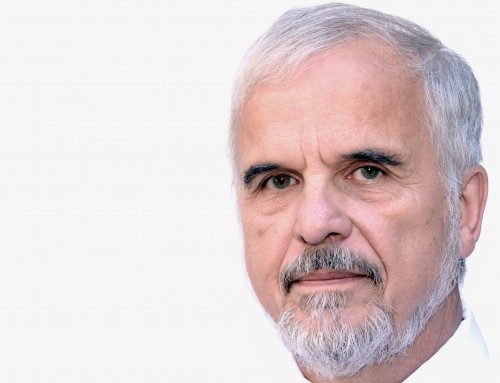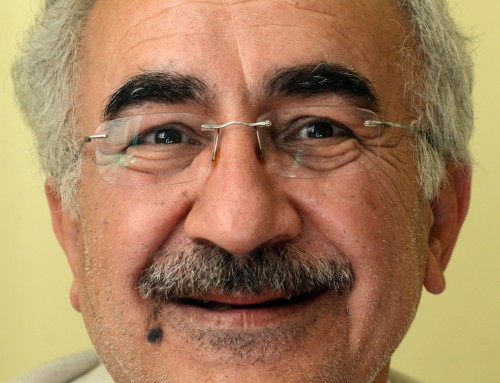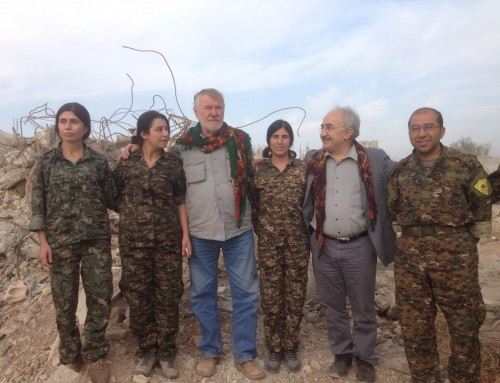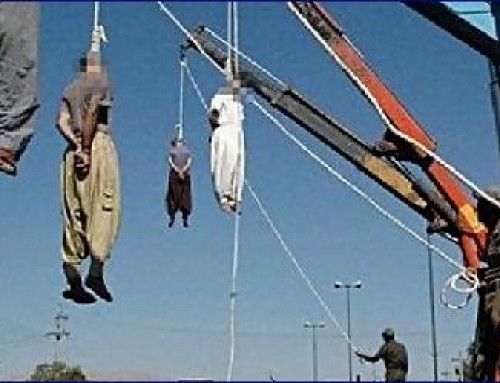“There can be received the Prozelytes from the people of Cardamus.” Thus, in the 1st century AD, the Jewish religion was adopted by the ruling dynasty of the state known as Adiabena with its center in Erbil (ancient Arbela) in contemporary Kurdistan, Iraq.
The area of contemporary Kurdistan was very close to the reach of missionary activities of all three dominant monotheistic cultures which did not remain without respond among its inhabitants. The local mountains, in the minds of the followers of Judaism, Christianity and Islam, have always been associated with the landing of Noah’s Ark, which is put on Mount Ararat by the Bible. The authors of the Talmud of Babylon, the final edition of which comes from the end of the 5th century AD, were obviously aware that the area surrounding Ararat was inhabited by the Kurds in their times, as the Talmudic sentence suggests: “Haman’s son Parsandatha was the governor of Kardunja where the Ark landed” . According to the Qur’an, Noah found the dry land on the mountain called al-Jude.
The peak of that name is really located at the altitude of 2089 m, northeast from the city of Cizre in Kurdistan, Turkey.
Among the inhabitants of the Kurdish mountains, there used to be frequent conversions to Judaism, as evidenced by the Talmud provisions: “There can be accepted the Prozelytes from the people of Cardamus.” Thus in the 1st century AD, the Jewish religion was adopted, for example, by the ruling dynasty of the state known as Adiabena with its center in Erbil (ancient Arbela) in contemporary Kurdistan, Iraq. Thus, it is still unclear how many disciples of Judaism in Kurdistan were descendants of Jewish immigrants and how many of them came from the circle of local converts.
The living presence of Judaism continued there until the 20th century, when most of the Jews from the Iraqi Kurdistan chose to emigrate to Israel. Among them there was also the family of Jicchak Mordechai, born in 1945 still in Kurdistan, who managed to succeed among the predatory political leaders in his new homeland. The Retired General served as the Minister of Defense of Israel in the right-wing government of Benjamin Netanyahu (1996-1999) and then ran for the position of the Prime Minister as the founder and leader of the Center Party (Miflega Libralit Jisra’elit) but his candidacy was withdrawn shortly before the elections, which, according to analysts, contributed very much to the final the victory of Netanyahu’s left-wing rival, Ehud Barak, in whose Cabinet Mordechaj eventually sat as the Minister of Transport. He surrendered his position on May 29, 2000 because of accusations of sexual coercion against his female subordinates, and became the first Israeli politician ever associated with a scandal of this kind.
It is certainly not insignificant that the Kurdish women always enjoyed the extent of freedom, unprecedented in the Middle East. Thanks to it, the first female Rabbi appeared in Mousulus in the 17th century. She was Asenath Bárzaní, the daughter of the leading rabbi and founder of many Jews (Jewish schools) in Kurdistan, Samuel Barzani.







Leave A Comment